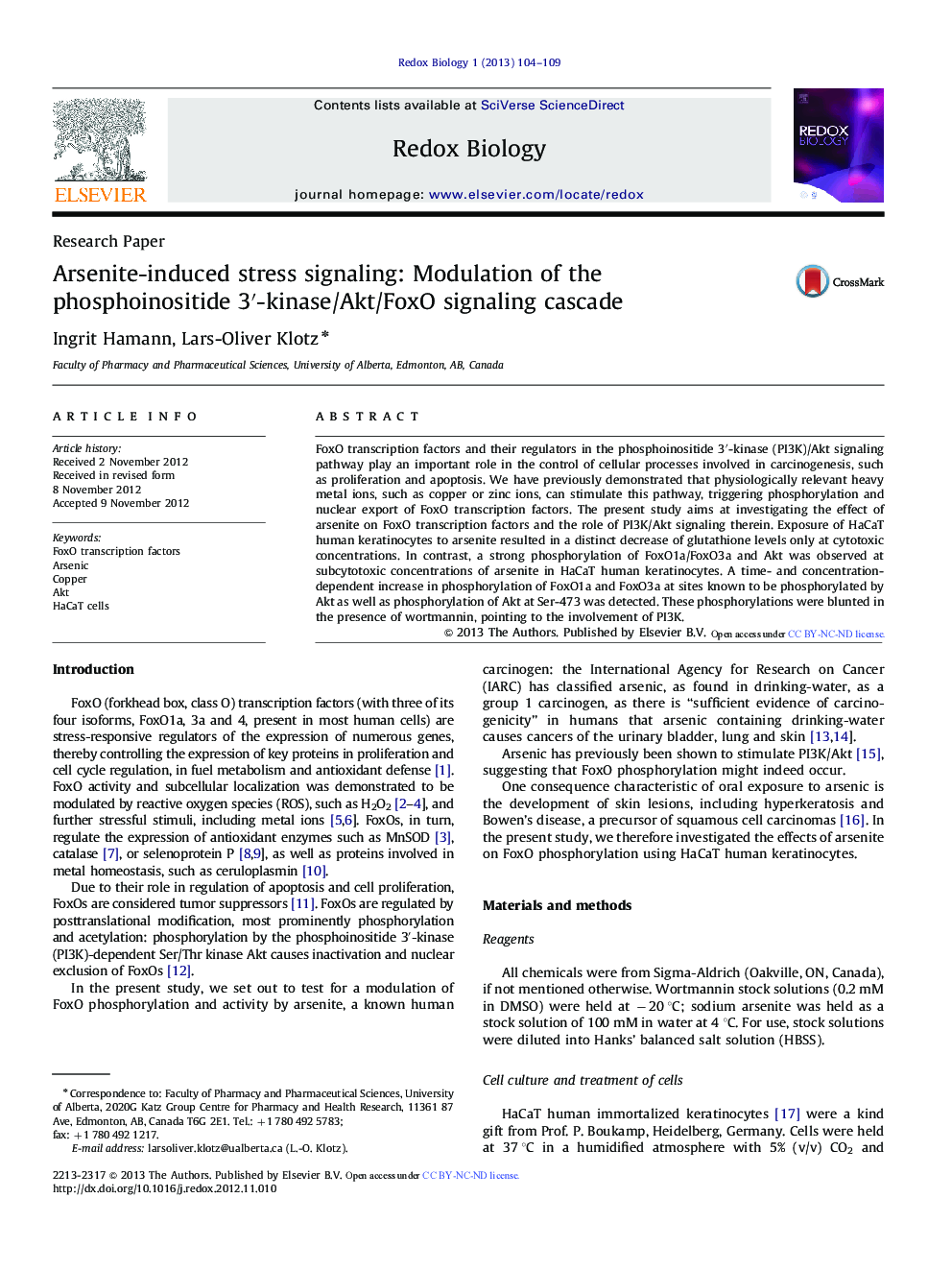| Article ID | Journal | Published Year | Pages | File Type |
|---|---|---|---|---|
| 1923237 | Redox Biology | 2013 | 6 Pages |
FoxO transcription factors and their regulators in the phosphoinositide 3′-kinase (PI3K)/Akt signaling pathway play an important role in the control of cellular processes involved in carcinogenesis, such as proliferation and apoptosis. We have previously demonstrated that physiologically relevant heavy metal ions, such as copper or zinc ions, can stimulate this pathway, triggering phosphorylation and nuclear export of FoxO transcription factors. The present study aims at investigating the effect of arsenite on FoxO transcription factors and the role of PI3K/Akt signaling therein. Exposure of HaCaT human keratinocytes to arsenite resulted in a distinct decrease of glutathione levels only at cytotoxic concentrations. In contrast, a strong phosphorylation of FoxO1a/FoxO3a and Akt was observed at subcytotoxic concentrations of arsenite in HaCaT human keratinocytes. A time- and concentration-dependent increase in phosphorylation of FoxO1a and FoxO3a at sites known to be phosphorylated by Akt as well as phosphorylation of Akt at Ser-473 was detected. These phosphorylations were blunted in the presence of wortmannin, pointing to the involvement of PI3K.
Graphical abstractArsenite stimulates Akt-dependent FoxO phosphorylationFigure optionsDownload full-size imageDownload as PowerPoint slideHighlights► Exposure of HaCaT cells to arsenite results in FoxO phosphorylation and inactivation. ► FoxO phosphorylation requires phosphoinositide 3′-kinase. ► Arsenite stimulates PI3K-dependent Akt phosphorylation.
